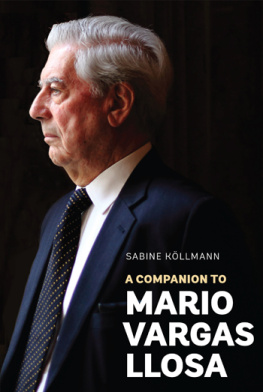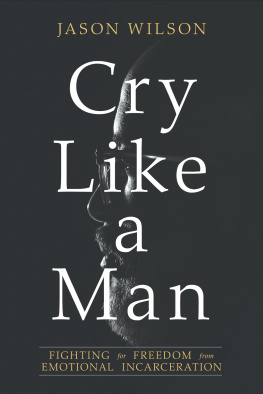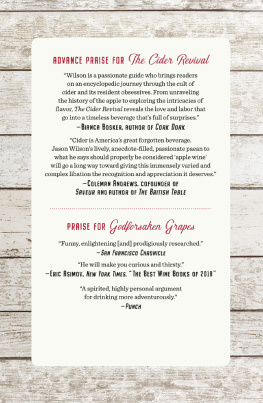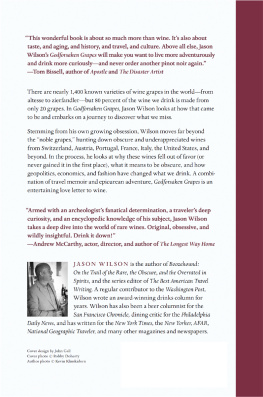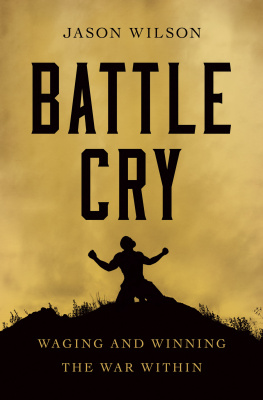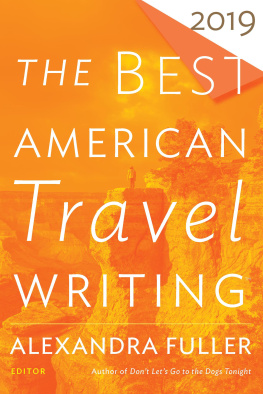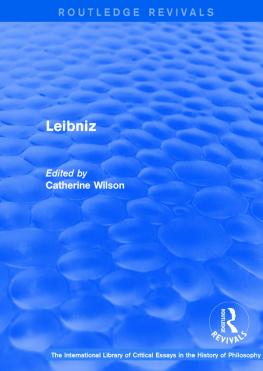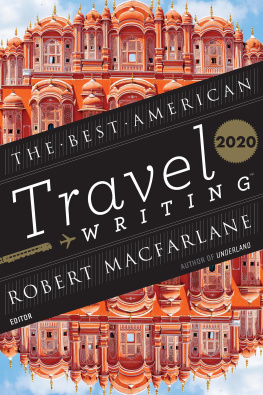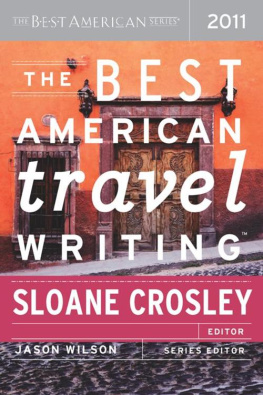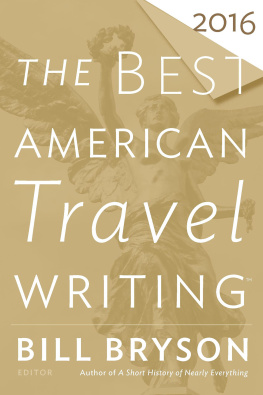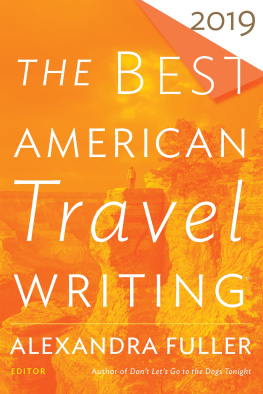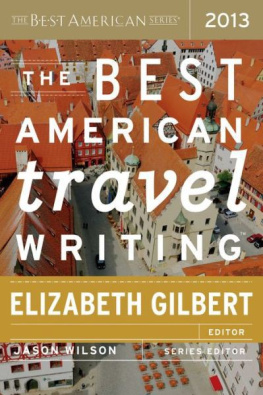Jason Wilson - Best American Travel writing 2001
Here you can read online Jason Wilson - Best American Travel writing 2001 full text of the book (entire story) in english for free. Download pdf and epub, get meaning, cover and reviews about this ebook. genre: Detective and thriller. Description of the work, (preface) as well as reviews are available. Best literature library LitArk.com created for fans of good reading and offers a wide selection of genres:
Romance novel
Science fiction
Adventure
Detective
Science
History
Home and family
Prose
Art
Politics
Computer
Non-fiction
Religion
Business
Children
Humor
Choose a favorite category and find really read worthwhile books. Enjoy immersion in the world of imagination, feel the emotions of the characters or learn something new for yourself, make an fascinating discovery.

- Book:Best American Travel writing 2001
- Author:
- Genre:
- Rating:5 / 5
- Favourites:Add to favourites
- Your mark:
- 100
- 1
- 2
- 3
- 4
- 5
Best American Travel writing 2001: summary, description and annotation
We offer to read an annotation, description, summary or preface (depends on what the author of the book "Best American Travel writing 2001" wrote himself). If you haven't found the necessary information about the book — write in the comments, we will try to find it.
Best American Travel writing 2001 — read online for free the complete book (whole text) full work
Below is the text of the book, divided by pages. System saving the place of the last page read, allows you to conveniently read the book "Best American Travel writing 2001" online for free, without having to search again every time where you left off. Put a bookmark, and you can go to the page where you finished reading at any time.
Font size:
Interval:
Bookmark:
Travel Writing 2001
---------------------------------------------------------------------------------
Edited and with an Introduction by
Jason Wilson, Series Editor
Twenty hours before, the faces of the people around me seemed bright with the prospect of reaching a new country. Now, as the arduousness of the crossing became clear, their stares conveyed the flat helplessness of fear. David, whose journey I had followed from his hometown of Port-au-Prince, buried his head in his hands. He hadnt moved for hours. Im thinking of someplace else, is all he would reveal. Stephen, who had helped round up the passengers, looked anxiously out the holds square opening, four feet over our heads, where he could see a corner of the sail and a strip of cloudless sky. I cant swim, he admitted softly. Kenton, a thirteen-year-old boy, sat in a puddle of vomit and trembled as though crying, only there were no tears. I was concerned about the severity of Kentons dehydration and could not shake the thought that he wasnt going to make it. Some people get to America, and some people die, David had said. Me, Ill take either one. Im just not taking Haiti anymore.
It had been six weeks since David had made that pronouncement. This was in mid-March of 2000, in Port-au-Prince, soon after Haitis national elections had been postponed for the fifth time and the country was entering its second year without a parliament or regional officials. David sold mahogany carvings on a street corner not far from the United States embassy. He spoke beautiful English, spiced with pitch-perfect sarcasm. His name wasnt really David, he said, but its what people called him. He offered no surname. He said hed once lived in America but had been deported. He informed me, matter-of-factly, that he was selling souvenirs in order to raise funds to pay a boat owner to take him back.David was not alone in his desire to leave Haiti. In the previous six months, Haitians had been fleeing their country in numbers unseen since 1994, when a military coup tried to oust Jean-Bertrand Aristide, who was president at the time. Haitis poverty level, always alarming, in recent years has escalated to even higher levels. Today, nearly 80 percent of Haitians live in abject conditions. Fewer than one in fifty has a steady wage-earning job; per capita income hovers around $250, less than one-tenth the Latin American average. Haitians once believed that Aristide might change things, but he was no longer in power, and the endless delays in elections, the recent spate of political killings, and the general sense of spiraling violence and corruption has led to a palpable feeling of despair. In February, the U.S. State Department released the results of a survey conducted in nine Haitian cities. Based on the study, two-thirds of Haitians approximately 4,690,000 people would leave Haiti if given the means and opportunity. If they were going to leave, though, most would have to do so illegally; each year, the United States issues about ten thousand immigration visas to Haitian citizens, satisfying about one-fifth of 1 percent of the estimated demand.
To illegally enter America, Haitians typically embark on a two-step journey, taking a boat first to the Bahamas and then later to Florida. In the first five months of 2000, the United States and Bahamian Coast Guards picked up more than a thousand Haitians, most on marginally seaworthy vessels. This was twice the number caught in all of 1999. Late April was an especially busy time. On April 22, the U.S. Coast Guard rescued 200 Haitians after their boat ran aground near Harbor Island, in the Bahamas. Three days later, 123 Haitian migrants were plucked from a sinking ship off the coast of Great nagua Island. Three days after that, 278 Haitians were spotted by Bahamian authorities on a beach on Flamingo Cay, stranded after their boat had drifted for nearly a week. By the time rescuers arrived, 14 people had died from dehydration; as many as 18 others had perished during the journey. These were merely the larger incidents. Most boats leaving Haiti carry fewer than 50 passengers.
Such stories did not deter David. He said he was committed to making the trip, no matter the risks. His frankness was unusual. Around foreigners, most Haitians are reserved and secretive. David was boastful and loud. Its been said that Creole, the lingua franca of Haiti, is 10 percent grammar and 90 percent attitude, and David exercised this ratio to utmost effectiveness. It also helped that he was big, well over six feet and bricked with muscle. His head was shaved bald; a sliver of mustache shaded his upper lip. He was twenty-five years old. He used his size and his personality as a form of self-defense: the slums of Port-au-Prince are as dangerous as any in the world, and David, who had once been homeless for more than a year, had acquired the sort of street credentials that lent his words more weight than those of a policeman or soldier. He now lived in a broken-down neighborhood called Projet Droullard, where he shared a one-room hovel with thirteen others the one mattress was suspended on cinder blocks so that people could sleep not only on but also beneath it. David was a natural leader, fluent in English, French, and Creole. His walk was the chest-forward type of a boxer entering the ring. Despite his apparent candor, it was difficult to know what was really on his mind. Even his smile was ambiguous the broader he grinned, the less happy he appeared.
The high season for illegal immigration is April through September. The seas this time of year tend to be calm, except for the occasional hurricane. Last May I mentioned to David that I, along with a photographer named Chris Anderson, wanted to document a voyage from Haiti to America. I told David that if he was ready to make the trip, Id pay him $30 a day to aid as guide and translator. He was skeptical at first, suspicious that we were working undercover for the CIA to apprehend smugglers. But after repeated assurances, and after showing him the supplies wed brought for the voyage self-inflating life vests (including one for David), vinyl rain jackets, waterproof flashlights, Power Bars, and a first-aid kit his wariness diminished. I offered him an advance payment of one days salary.Okay, he said. Its a deal. He promised hed be ready to leave early the next morning.
David was at our hotel at 5:30 A.M., wearing blue jeans, sandals, and a T-shirt and carrying a black plastic bag. Inside the bag was a second T-shirt, a pair of socks, a tin bowl, a metal spoon, and a Bible. In his pocket was a small bundle of money. This was all he took with him. Later, he bought a toothbrush.
David opened his Bible and read Psalm 23 aloud: Yea, though I walk through the valley of the shadow of death
Font size:
Interval:
Bookmark:
Similar books «Best American Travel writing 2001»
Look at similar books to Best American Travel writing 2001. We have selected literature similar in name and meaning in the hope of providing readers with more options to find new, interesting, not yet read works.
Discussion, reviews of the book Best American Travel writing 2001 and just readers' own opinions. Leave your comments, write what you think about the work, its meaning or the main characters. Specify what exactly you liked and what you didn't like, and why you think so.

